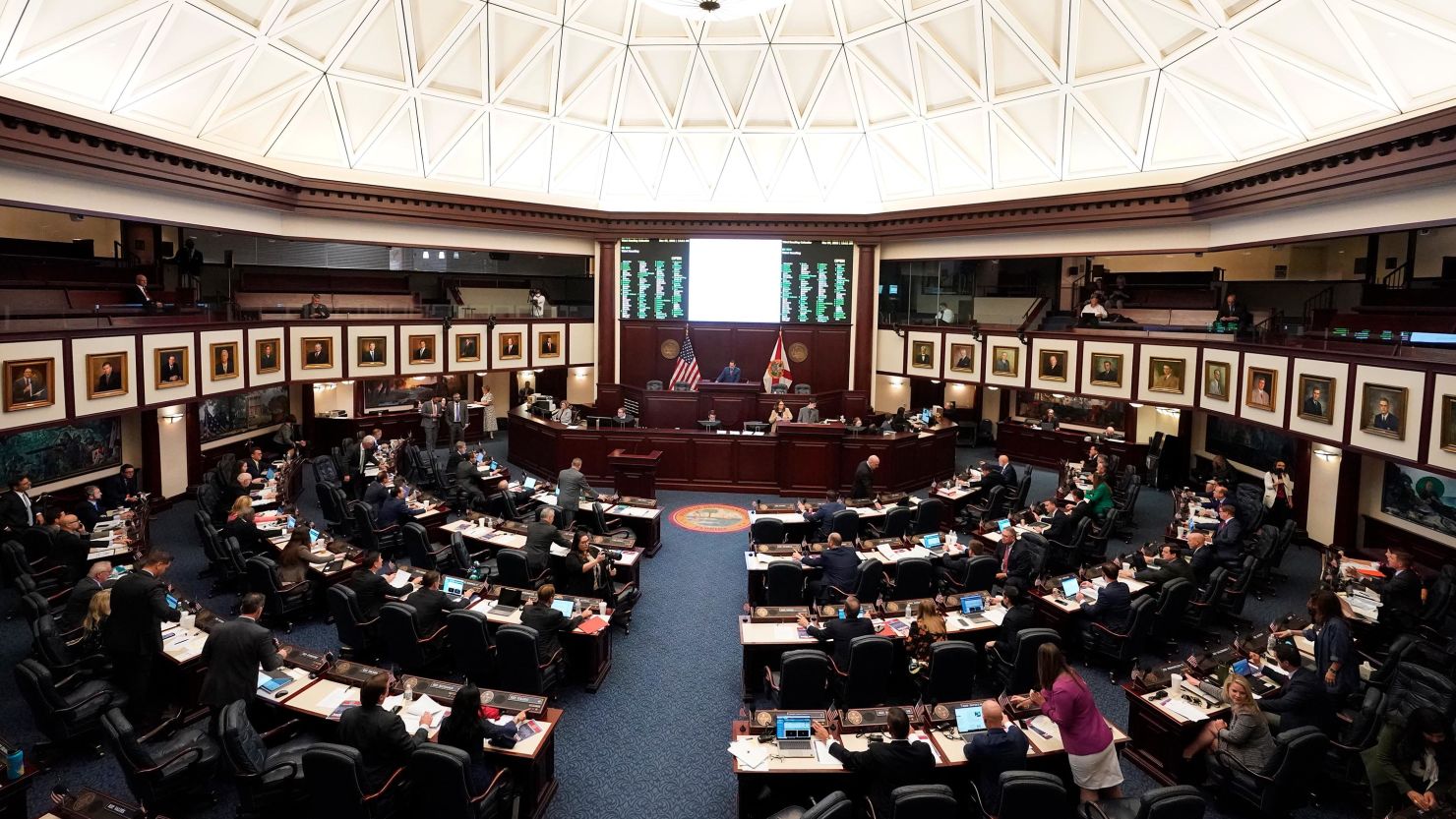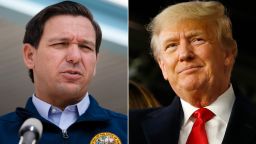The Republican-controlled Florida House on Wednesday night passed a voting overhaul bill that would create a new security office to investigate election crimes and increase penalties for violating the state’s elections laws.
The legislation would establish a scaled-back version of an elections police force first proposed last year by Florida GOP Gov. Ron DeSantis. The House vote completes legislative action on the measure, which is now headed to DeSantis for his signature.
The bill would establish an Office of Election Crimes and Security within the Department of State with a staff of 15 to conduct preliminary investigations of election fraud. In addition, the measure calls for DeSantis to appoint up to 10 law enforcement officers to the Florida Department of Law Enforcement to probe election crimes.
The combined effort would have a budget of about $3.7 million, said state Rep. Daniel Perez, the Republican lawmaker guiding the bill through the House. DeSantis, who is up for reelection this year and is weighing a 2024 presidential bid, had initially proposed a 52-member force with a $5.7 million budget.
Florida would become one of the first states to have a unit focused on election fraud.
Election fraud is exceedingly rare, and Democrats and Republicans in the state previously described the 2020 election as smoothly run. DeSantis last year said Florida passed its automatic post-election audits with “flying colors.”
Perez said the new election crimes investigations unit would serve as an “extra resource” for local election supervisors to ensure “there are absolutely no cases falling through the cracks.”
“The more resources we have to attack the bad people, the bad actors who are committing fraud, the better for the state of Florida,” Perez said during floor debate Tuesday night. “The more the merrier.”
The legislation that passed the Florida House on Wednesday marks the second elections overhaul in two years to tighten voting laws in the state – as supporters for former President Donald Trump clamor for further reviews of the 2020 election.
Trump won the state by a comfortable margin, but he has spread baseless claims that election fraud contributed to his loss in other battleground states.
The bill passed Wednesday would make it a felony to collect and submit more than two vote-by-mail ballots on behalf of other voters. It’s currently a misdemeanor to do so. It also increases the fine from $1,000 to $50,000 on organizations that violate election registration laws.
Critics said it was overreach.
“We’re going to convict people of a felony because they helped three instead of two elderly neighbors?” Democratic state Rep. Joseph Geller said, as he argued against the bill on Wednesday evening.
The new elections security force and increased penalties could “deter people from participation in the democratic process,” said Daniel Griffith, policy director at Secure Democracy USA, a nonprofit organization that works to boost access to the ballot.
Griffith said there appear to be few guardrails on the activity of the new elections investigations unit. “We don’t know exactly what they are investigating: Are they investigating election officials? Are they investigating voters?”
Democrats in the Florida House raised concerns during this week’s debate that increased penalties could ensnare voter registration groups for making mistakes, such as misplacing a voter’s registration card, and chill their activity in the state.
Responded Perez: “If the third-party voter organization doesn’t commit fraud, they’re never going to have to be concerned about paying fines or fees.”
Cecile Scoon, the president of the Leagure of Women Voters of Florida, called the new $50,000 fine a “direct threat” to her organization. “When you couple the increased fines with the new election investigators, it doesn’t give you a warm or cozy feeling,” she told CNN.
The bill also mandates that election supervisors conduct maintenance of voter lists more frequently and expands a ban on private funding of election administration to include “the cost of any litigation.”



